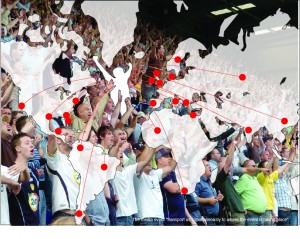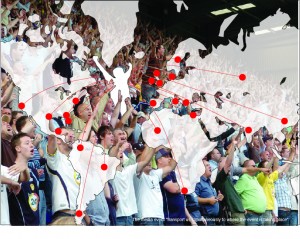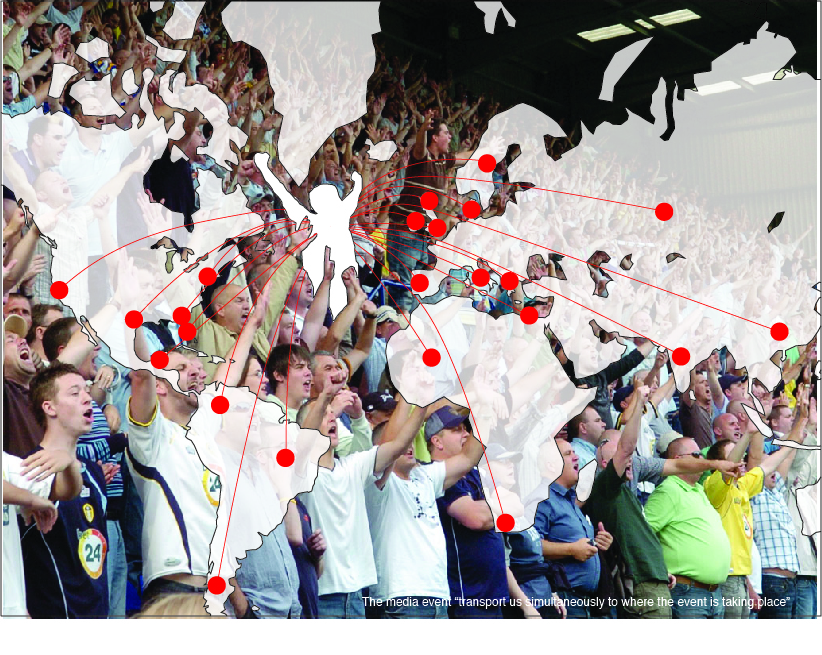

The Media Event as an Aparatus for Time and Space
The Media event can be conceptualized as a massive occasion in respect to both time and space. These events tend to revolve around news events ( a distiction to be made later) but are intensified through a period of speculation, coverage, and post event analysis. Sports journalism finds itself in the midst of the “media event” as an apparatus for effecting both time and space.
As this graphic illustrates, the media event is a significant part of the identity of an event. The individuals involved in the viewing and participation in the event are largely dislocated through space (specificly distance) and, in many cases, time ( this is a siginficant departure from previous interpretations of the Media event which speculate that it must be a live broadcast. Yet, the realm of the media event has not had a significant change since the use of broadcast delay as a means of sensoring (the Super Bowl is an example of this since the 2004 half time show with Justin Timberlake and Janet Jackson) as well as time delay to account for time zone differences (NBC’s use of ‘plausably live’ editing during the 2000 Sydney Olympics).
In the absence of the ‘live transmission’ requirement for media events, the essential guidelines include: preplanned event, framed in time and space, featuring a heroic personality or group, having high dramatic or ritual significance, and the force of a social norm which makes viewing mandatory.
Yet the most important aspect of these occurances is the interaction with the viewer. The inclusion of the self (even seperated by time and space) creates a world network which can “transport us simultaneously to where the event is taking place”(Elihu Katz, “Media Events: The Sense of Occasion”).
Sports “… is essential to the globalizing structure of media organizations. Sports is a relatively cheap method for filling hours of television time and moves easily across cultural and linguistic borders,” (Nancy K. Rivenburgh, “The Olympic Games: Twenty-First Century Challenges as a Global Media Event”). Sport Events fit will as national and global Media Events because they do not depend on culturally or socially unique elements. As such, it sits well as a unifier accross these many cultures and societies. As it stands, some of the most infulencal global media events are sports: the Winter Olympics, Summer Olympics, The World Cup, the Americas Cup, etc. The World Cup, for example receives viewerships numbering in the billions.
